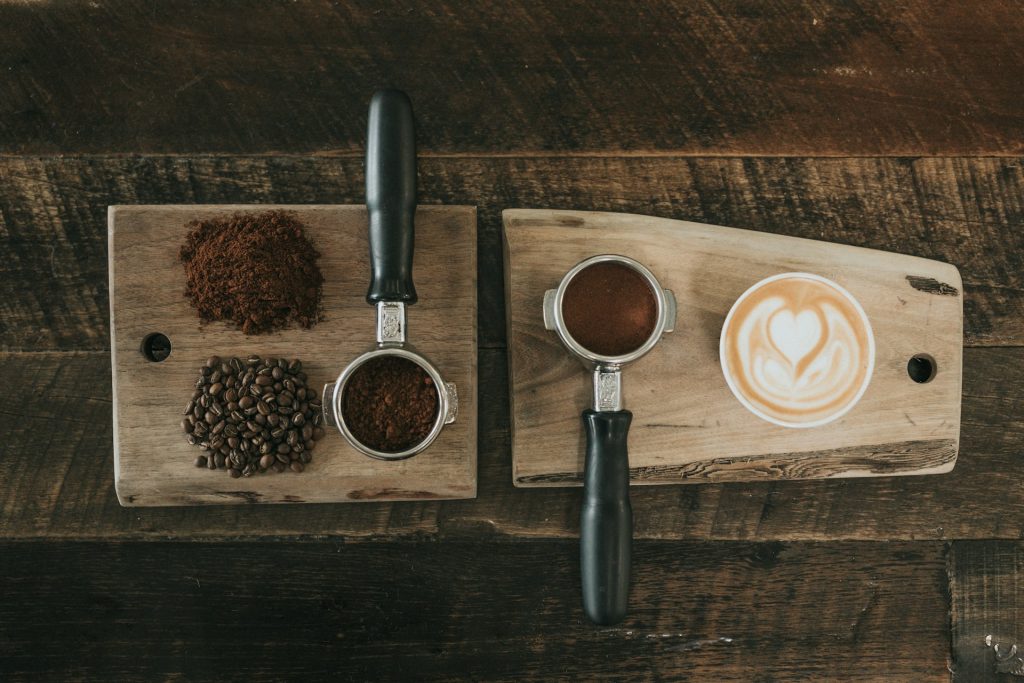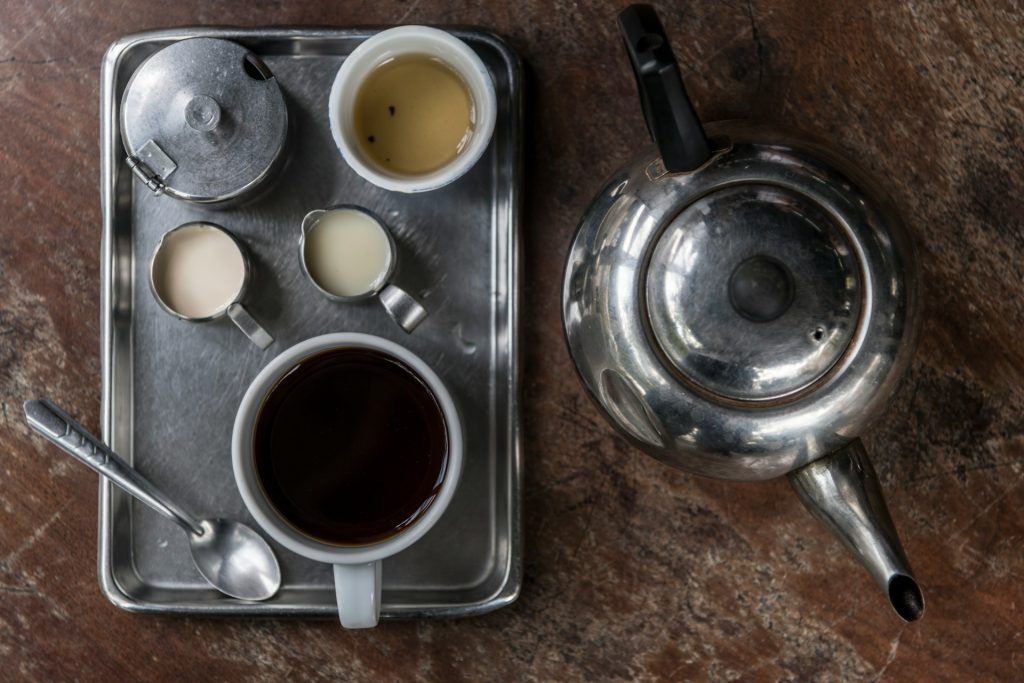Table of Contents
Did you know coffee isn’t just a drink—it’s been a catalyst in shaping world history? From intellectual revolutions to battlefield strategies, coffee has brewed its way into some of the most significant moments in history. This humble beverage has fueled ideas, inspired social movements, and even shaped global trade.
Here’s a closer look at how coffee has played a pivotal role in major historical events and left an indelible mark on our world.
The Coffeehouses of the Enlightenment
In the 17th and 18th centuries, coffeehouses became the heart of intellectual life in Europe. Dubbed “penny universities” because a penny’s worth of coffee bought you access to stimulating discussions, these establishments attracted thinkers, writers, and revolutionaries alike. It was here that people exchanged groundbreaking ideas about science, philosophy, and politics.
In London, coffeehouses were frequented by figures like Isaac Newton and Samuel Johnson, who debated topics ranging from physics to poetry. Similarly, in Vienna and Paris, these vibrant spaces became hubs for debate and innovation. Many credit coffeehouses with helping to fuel the Enlightenment, as the stimulating effects of coffee replaced the lethargy caused by alcohol, which was a more common drink before coffee’s rise.
The Boston Tea Party and Coffee’s Rise in America
The American Revolution wasn’t just about throwing tea into the Boston Harbor—it was also about embracing coffee as a patriotic symbol. In 1773, following the Boston Tea Party, colonists sought an alternative to tea, which was heavily taxed by the British. Coffee quickly became the drink of choice for American revolutionaries.
Patriot leaders like John Adams proudly declared their preference for coffee over tea, viewing it as a symbol of rebellion and independence. Coffeehouses in colonial cities became meeting places where revolutionaries gathered to plan their next moves. By rejecting tea and embracing coffee, Americans not only showed their defiance against British rule but also established coffee as a cornerstone of their national identity.
Coffee and the French Revolution
In the late 18th century, coffeehouses in Paris became the epicenter of revolutionary thought. These establishments were frequented by radical thinkers, writers, and activists who used the spaces to share ideas and organize movements. Café Procope, one of the most famous coffeehouses in Paris, hosted figures like Voltaire, Diderot, and Robespierre.
The stimulating environment of coffeehouses, combined with the energizing effects of caffeine, created fertile ground for revolutionary ideas to flourish. Discussions about liberty, equality, and fraternity—values that defined the French Revolution—were brewed alongside steaming cups of coffee. These coffeehouses weren’t just places to drink coffee; they were places to challenge authority, inspire action, and build momentum. Coffee didn’t just fuel conversations; it gave revolutionaries the energy and unity to mobilize for lasting change.
The Industrial Revolution’s Coffee Boom

As factories and long work hours defined the Industrial Revolution, coffee became an essential part of the workforce’s routine. Workers needed a drink that could keep them alert during grueling shifts, and coffee fit the bill perfectly. Its energizing properties made it a staple for industrial laborers and factory workers.
The rise of coffeehouses during this time also shaped workplace culture. Employers began incorporating coffee breaks into the workday, a practice that continues in modern offices. These breaks not only boosted productivity but also provided workers with a moment of respite and social connection.
Coffee wasn’t just a beverage—it became a symbol of the new industrialized world, where efficiency and productivity were prized. It’s no coincidence that coffee’s popularity skyrocketed during this era, as it helped fuel the rapid pace of progress.
World War II and Instant Coffee
World War II brought coffee to the frontlines in a big way. For soldiers facing harsh conditions and long hours, coffee provided a much-needed boost of energy and comfort. The logistical challenges of brewing traditional coffee in the field led to the rise of instant coffee, a product that could be prepared quickly and easily.
Brands like Nescafé became household names during this time, as they supplied instant coffee to soldiers across the globe. This convenience allowed soldiers to maintain a sense of normalcy amidst the chaos of war. For many servicemen and women, coffee became a symbol of home, a small comfort in the midst of chaos. After the war, instant coffee’s popularity skyrocketed, transforming how people consumed coffee and cementing its place in kitchens worldwide as a convenient staple for daily life.
The Cold War and Coffee Diplomacy

During the Cold War, coffee played a surprising role in global politics. As one of the world’s most traded commodities, coffee became a tool for diplomatic relations and economic influence. Countries in Latin America, Africa, and Asia relied heavily on coffee exports, making it a key factor in trade negotiations.
The United States, a major coffee consumer, used its purchasing power to strengthen alliances with coffee-producing nations. For example, Brazil’s economy was heavily tied to coffee production, and its relationship with the U.S. was shaped in part by this trade. Similarly, the Soviet Union sought to build connections with coffee-producing countries as part of its efforts to expand its global influence.
Coffee was more than just a beverage—it was a strategic asset in the complex world of Cold War diplomacy.
Modern Social Movements and Coffee Culture

In the 20th and 21st centuries, coffeehouses have continued to serve as gathering places for activists, artists, and thinkers. From the civil rights movement to environmental campaigns, coffeehouses have provided a space for people to connect, organize, and share ideas.
For example, during the 1960s, coffeehouses in the U.S. became hubs for folk music and antiwar activism. These spaces fostered creativity and dialogue, often bridging gaps between different communities. Today, many coffee shops champion sustainability, fair trade, and social justice initiatives, using their platforms to support meaningful causes. The rise of third-wave coffee culture has also brought attention to ethical sourcing and the stories of coffee farmers, connecting consumers with the global community behind their cup. Modern coffee culture is not just about brewing—it’s about brewing change.
Coffee Is More Than Just a Brew

From fueling revolutions to shaping modern workplace culture, coffee has played an extraordinary role in history. It’s more than just a drink—it’s a catalyst for change, a symbol of unity, and a source of comfort in times of turmoil. The next time you sip your morning brew, take a moment to reflect on the incredible history behind it. Coffee’s legacy is one of resilience, innovation, and connection—a reminder of how even the simplest pleasures can have a profound impact on the world.

I’m Audrey, a dedicated mother of teenagers with an insatiable love for coffee. On BeanBrewLove.com, I intertwine my need for caffeine with reflections on life. Whether expressing a nostalgic sentiment or injecting a hint of sarcasm, my blog is a reservoir of coffee culture, brewing techniques, and global coffee reviews.




